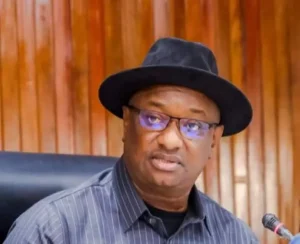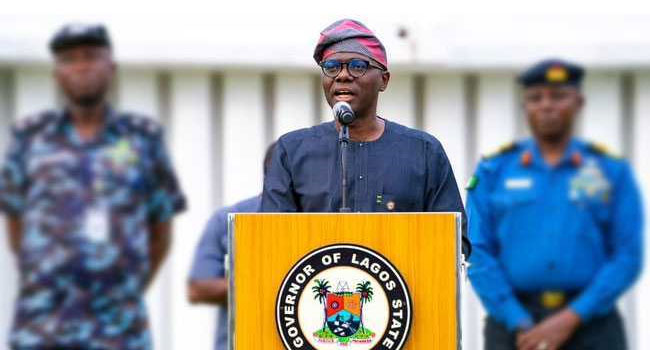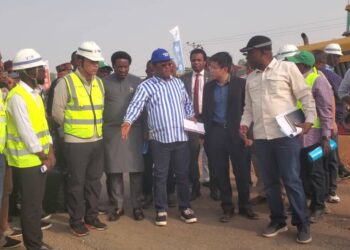OKECHUKWU ONUEGBU writes that the Southeast geopolitical zone of Nigeria may stand a chance to smile again after 2023 general elections, should the people decide to forgo their comfort zones and cast their votes for credible leaders capable of reactivating the factories
It has been generally agreed that bad leadership is the bane of the Southeast zone in terms of lack of development due largely to lack of attention on comatose establishments that made lives bearable in the past.
But palpable feelings of introspection among the people is awakening a new consciousness capable of engendering a societal rethink for the zone to elect leadership that is development- driven. Yes! leadership that will return Abia, Anambra, Ebonyi, Enugu and Imo states to their factory settings.
Southeast as bridge builder
Southeast is believed to be a bridge builder, a pace setter and transformer-general in the world, hence the general saying that any community or place where no Igbo man or woman resides, should be jettisoned and considered uninhabitable.
It is also committee n knowledge that the Igbo nation has produced industrialists, computer wizards, technicians, lawyers, teachers, gallant military and paramilitary officers of international repute and other worthy professionals and captains of industries.
But due to what many consider as bad leaderships, the zone is still underdeveloped in many ramifications. However, her men and women seemed to be at the forefront of developing other cities in Nigeria states, countries in Africa and across the globe.
The 2023 general elections presents the citizenry with greater opportunity to make amends.
Aside Anambra state which had held its gubernatorial polls in 2021 where Prof Chukwuma Soludo emerged as governor, Abia, Imo, Enugu and Ebonyi states are set to elect new governors.
However, only Governor Hope Uzodinma of Imo state will stand for re-election. His counterparts from Enugu, Abia and Ebonyi states will be serving out their second tenures by 2023, respectively.
Unity
There is a consensus that Southeast needs political leaders who believe in unity of purpose, sincerity and economy. An Ohanaeze Chieftain from Imo state Chidi Njoku said, “If they succeed in electing governors who understand the importance of unity in diversity in the southeast, the zone will succeed in tackling her numerous challenges, even if under different political parties.”
Chief Njoku continued, “Unity breeds peace and progress. An Igbo adage says that a tree does not make a forest, while another adds that a bunch of broom is unbreakable. A formidable and united Southeast Governors Forum will initiate programmes, policies and actions geared toward bringing in the three tiers of governments in the zone under identifiable fora.
Legislation
On legislation, Njoku said, “The fora may be expected to galvanise a very active South East National Assembly caucus/forum, South East States Houses of Assembly Forum, South East Association of Town Unions, South East Traditional Rulers Forum, among others.
“The fora or coalitions will through constants meetings and brainstorming, form a common front or speak in one voice. As think-tanks, they will help lawmakers from the zone to propose bills to be presented in State or National Assemblies.
“Lawmakers through this fora can be updated on what their constituents want and articulate them into legislations, motions and resolutions. With this, they will improve on their contributions at the national assembly, and even at states and local governments levels.
“Also, a united knowledgeable forum of states and National Assemble members will intensify efforts towards performing oversight functions, monitoring and evaluating national and states budgets and projects for overall developments.
“The zone needs legislators who will help the executives to formulate policies that can activate, reactivate and effectively run the South East Development Commission and South East Governors Forum respectively.
“The benefits include jobs and wealth creations, cultural, political emancipation, economic integration, reduction of relations, reservoirs of knowledge, data sharing and correlation.
Security
Security of lives and properties are the key to socioeconomic development. It is a great asset this unity will address swiftly and holistically, with little or no resources. A united South East leadership needs not formulate a zonal security network whereas each state boasts of local vigilantes or neighbourhood watch.
“When the vigilante members in the five states are constantly relating with information, tips and other resources, their borders, streets, markets and homes will be adequately secured. Miscreants will surely find it difficult to escape through road, air or water transportations. Families, homes, communities and associations will freely contribute because it is generally believed that everyone knows the character and characterisations of their kits and kin.”
Education and Health
A formidable executives and lawmakers across the five states will make education and health top priorities. An educational expert from the Nnamdi Azikwe University Awka Dr Godswill Eke, said “for education, they should introduce scholarship programmes for students willing to study specialised science and technical subjects/courses, Igbo language and educational related courses with a view to producing more manpower and wealth creators.”
To Dr Eke, “If South East gets it right this time, it will be easy for them to encourage or reactivate reading culture in the zone by organising interstates or zonal debates, quiz and other academic competitions in schools, states and the region. It will engender cross-cultural relationships, social economic developments and other opportunities, including awards, commendations, travelling, and many more.
“The zone is in dire needs of executives and lawmakers that will consider providing affordable and functional primary healthcare centres across the political wards in the zone. New leadership that will also uplift Secondary and Tertiary health care centres because a healthy people are wealthy nation. This will surely eliminate brain drain and crimes currently waxing strong in the zone.”
Sports
Sporting activities used to be on the top gear in the zone when it was Eastern Nigerian region, later East Central State. The preponderance of views points to the fact that with good leadership, states in the zone could still reactivate sporting activities by introducing zonal competitions, states leagues and sports festivals as talents hunts on football, relay, scrabble, ludo, wrestling, etc.
A prominent sport analyst in the Anambra Broadcast station, Mr Kelvin Ejiogu, underscored that “Southeast states need governments, legislators, politicians and individuals that will invest massively on sports.
“The zone needs more sporting teams. Primary and secondary schools sporting/inter-house events, towns and Local Government Area sports activities should be encouraged by the new leaders.
“The benefits to both the founders/sponsors and participants abounds. It creates wealth, atmosphere for unity and peace, among others. Expects have also proved that sports assist in crimes reductions and reductions of unemployment.”
Diversification
Up to late 1960s, the Igbo nation under the defunct Eastern Nigeria governments encouraged diversified economy through agriculture, trades and technology, as well as explored and refined oil and gas during Biafra-Nigeria war.
The defunct Eastern Nigeria was noted for commercialised agriculture, hence its exportation of cash crops like palm produce. Farming was in a large scale. Hence, Malaysia was reported to have taken a palm kernel from the zone and today, the country is the a major exporter of palm oil.
A former Commissioner of Agriculture in Anambra state Chief Caleb Letam said, “The Southeast zone will certainly spring surprises if incoming governments invest in palm oil productions, cassava, seeds and other cash crops, animal husbandry, fish farming and others.
“The agricultural reformation begun by the government of late Sir Michael Okpara as Premier of Eastern Nigeria should be revived rather than allowed to be lying waste across communities in the Southeast.
“With agricultural revolutions, industries and companies will grow again in the South East, attracting both local and foreign investors to develop the zone. It will definitely lead to emergence of more cities, towns, urban, and semi-urban communities. From agriculture, other sectors of the economy and natural endowment in the zone will be also be explored and harnessed.
“The Southeast states should not live in the euphoria of oil and gas as others do in the country. It is true that Abia, Imo and Anambra States are oil producing States. New South East leadership should discover and tap from other untaped natural resources in the zone. It must not be oil and gas alone when Enugu and Ebonyi are blessed with limestone, coal, etc.”
Climate
To an environment expert, Chief Emeka Diugwu, “new crop of Southeast leaders should set the pace for the federal governments with regards to climate change adaptation, mitigation and other issues. Green Economy is the practice all over the world. Investing on it will help the zone to reclaim the lands they lost to gully erosions. This is possible through tree plantations, forestry, among other methods.
“Similarly, with renewable energy and solar power, and creation of dams for irrigation and other purposes, the zone will be salvaged from epileptic power supply and flooding. River Niger and other local rivers, including Oji, Omambala, Ezu, Nnam, Iyiokwu, Abia and Imo Rivers will boost our economy when properly utilised.”
Transportation
Concerned citizens agreed that there is urgent need for the Southeast leaders to unanimously persuade the federal government to provide the zone with seaports or probably permit them (the South East) to construct as many seaports as possible. Similarly, railways and airports should equally be invested on.
The proprietor of Gold Service in Onitsha Anambra state, Clifford Onuora suggested, “the executives arm and the legislature should invest more on provision of roads and other infrastructural developments from the respective state headquarters down to the nooks and crannies of the zone. This worth investing constituency projects into than spending them on personal aggrandisement.”
Investments and Markets
There is no stressing the fact that the above listed developments will attract both local and international investors into the zone for industrialisation, wealth and job creations. Chief Onuora believes that Southeast governors and lawmakers can only encourage more investments into the zone by improving the security, power supply, availability of raw materials and making or encouraging policies (like low taxations, land acquisitions and road rehabilitations.
It goes without saying that when there are industries, more markets, hospitals with state of arts and other institutions will thrive. The governments can also kickstart the process by introducing quarterly or monthly trade fairs in the zone.
“This could be rotational among the five States and cities, together with public lecture series and researches aim at discovering new and refining existing businesses, trades, commerce and services,” Onuora said.




